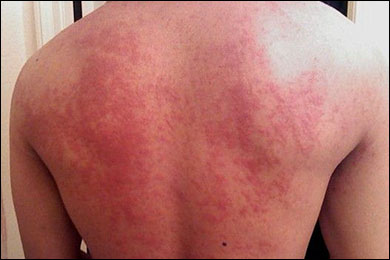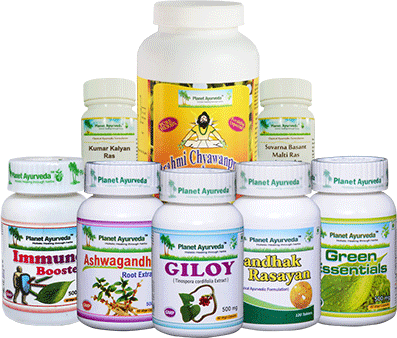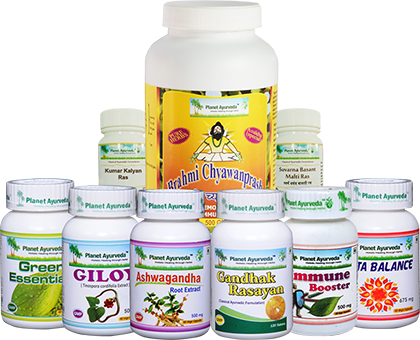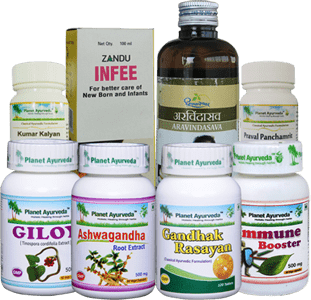Herbal Remedies For Idiopathic Thrombocytopenic Purpura (ITP)

Introduction
ITP as the name suggests, Idiopathic Thrombocytopenic Purpura, where Idiopathic means whose cause is not known, Thrombo means Platelets and Purpura means spots.
It is an acquired disorder leading to immune mediated destruction of the platelets which is characterized by mucocutaneous bleeding with low or very low platelet count.
In modern science, its cause is not known, therefore it is known as Idiopathic. But, in Ayurveda, we will explain its cause and how we can cure and prevent it.
In Ayurveda, Idiopathic Thrombocytopenic Purpura can be correlated to Raktpitta which is mentioned in an ancient textbook of Ayurveda (Charak Samhita).
Ancient Verse

(Reference: Charak Samhita, Part 2, Chikitsasthanam, Raktpittchikitsa adhyaya: 8)
Meaning: Due to the intake of hot, bitter and sour tastes, there is a vitiation of Pitta dosha which gets mixed up with the blood tissue. Pitta is produced in the blood, when it mixes with blood it vitiates blood. As a result, there is a production of heat in the blood and due to heat, tissues such as muscles and blood get destroyed.
In Ayurveda, the cause of ITP is the vitiation of Rakt dhatu (blood) and Pitta dosha. Hence, it is known as “Raktpitta” in Ayurveda.
According to Ayurveda, the qualities of Pitta Dosha are:
पित्तंसस्नेहतीक्ष्णोष्णंलघुविस्रंसरंद्रवम्
(Reference: Ashtang Hridyam, Chapter 1, shlok no. 11)
In this shloka, the qualities of Pitta dosha are explained.
Meaning: Sasneha: slightly oily, unctuous, Teekshana: piercing, Ushna: hotness, Laghu: lightness, Visram: bad smell, Sara: having fluidity and movement, Dravam: liquidity.
Rakt-Pitta Pathogenesis: In Ayurveda, the relationship between Rakta Dhatu and Pitta Dosha has documented and well elaborated.
- The main cause of Raktpitta mentioned in Ayurveda is the consumption of more Amal, Lavan and Katu Ras as they increase Pitta dosha.
- Pitta dosha gets aggravated by the intake of spicy foods, sour foods and consumption of Virudh Ahara (wrong food combinations) such as taking sour foods with milk and milk products.
- There is a formation of Ama rasa in the body which vitiates Pitta dosha and this vitiated Pitta dosha causes Rakt-Pitta.
- In Ayurveda, Yakrit (liver) and Pliha (spleen) are known as the main organs of Rakta (blood).
- In ITP, Ranjak Pitta does not perform its functions properly.
What are the Symptoms of ITP?
- When the platelet count gets low, blue colored spots appear over the whole body.
- Easy or excessive bruising.
- Bleeding from the nose or gums
In modern medicine, the first line of treatment of ITP is corticosteroids and Intravenous Immunoglobulin (IVIG), if first line therapies fail, then splenectomy or immuno-suppressive agents are prescribed. Continuous steroid usage by the patients causes severe side effects.
So, many patients with ITP are looking towards holistic herbal therapies such as Ayurveda (Indian) medicine as a natural treatment that might help them battle this bleeding disorder.
In Ayurveda, the treatment of ITP focuses on balancing the vitiated Pitta dosha
Herbal Remedies For ITP By Planet Ayurveda
Planet Ayurveda offers the best combinations of effective herbal remedies having properties such as:
- Tikta Ras (blood purifying and pitta pacifying in nature).
- Amal Ras with Madhur Vipak (Rasa and Rakta nourishing, dhatavagni stimulant and having Pitta pacifying effect).
- Kashaya Rasa (astringent effect for haemostatic action and wound healing).
- Sheet Veerya (for pitta pacifying).
In the initial stage of treatment, basic herbs such as Giloy, Ashwagandha, Papaya leaves juice extract, Chywanprash etc. are administered.
In excessive bleeding, a combination of Bolbadh Ras, Bol Parpati, Jahar Mohra Pishti, Keharwa Pishti, Swaranmakshik Bhasam, Rajat Bhasam are administered.
Dosage
- Immune Booster – 2 twice daily
- Ashwagandha Capsules – 2 twice daily
- Giloy Capsules – 1 twice daily
- Gandhak Rasayan – 2 twice daily
- Green Essentials – 2 twice daily
- Kumar Kalyan Ras – 1 twice daily
- Brahmi Chyawanprash – 1 teaspoonful twice daily
- Suvarna Basant Malti Ras – 1 twice daily
These should be consumed for 1 or 2 months and the results will be visible. The allopathic medicines of the patients can be reduced slowly. The above mentioned combination contains Ayurvedic herbo mineral and metallic preparations as well. All preparations are safe for human consumption and are approved by government of India for their use in various health conditions.
Dosage
- Giloy Capsules – 1 twice daily
- Ashwagandha Capsules – 1 twice daily
- Gandhak Rasayan – 1 twice daily
- Immune Booster – 2 twice daily
- Green Essentials – 1 twice daily
- Brahmi Chyawanprash – 1 tablespoonful twice daily
- Pitta Balance – 1 twice daily
- Kumar Kalyan Ras – 1 twice daily
- Suvarna Basant Malti Ras – 1 twice daily
Dosage
- Giloy Capsules – 1 twice daily
- Ashwagandha Capsules – 1 twice daily
- Gandhak Rasayan – 1 once daily
- Immune Booster – 1 twice daily
- Kumar Kalyan Ras – 1 once daily
- Infee Syrup – 2 teaspoonful twice daily
- Arvindasava Syrup – 2 teaspoonful twice daily
- Praval Panchamrit – 1 twice daily
Open up the capsules and pour the ingredients in a bowl and mix them with the Syrups. Crush the tablets and mix the powder in the syrup and then feed the child this mixture twice daily.
How do these Herbal Remedies Work?
1. Giloy Capsules
Giloy Capsules are prepared using the standardized extract of Tinosporacordifolia, commonly known as Guduchi.
- This plant is a preferred choice in the treatment of ITP because it has a platelet count increasing properties.
2. Ashwagandha Capsules
Planet Ayurveda’s Ashwagandha Capsules are prepared using the standardized extract of the herb Withaniasomnifera.
- This herb is very useful in the Ayurvedic treatment of ITP as it helps in the prevention of the immunosuppressive activity of the body thus allows the platelet count to rise.
- It strengthens the bone marrow as well.
Ancient Verse

(Reference: Bhav Prakash Nighantu, Guduchyadi Varga, Shlok No. 190)
Meaning: Ashwagandha has Vata and Kapha pacifying properties which reduce inflammation and weakness. It provides strength and acts as Rasayana. It has bitter and astringent tastes.
3. Gandhak Rasayan
Gandhak Rasayan is a classical mineral-based medicine that contains sulphur processed with herbal juice as the main ingredient.
- It is useful in bleeding disorders, improves skin complexion and immunity.
- Sulphur can cure even changes in DNA.
- In Ayurveda, it is used in the purified form in a very minute quantity.
4. Immune Booster
Planet Ayurveda’s Immune Booster Capsules are a combination of various herbs such as grape seeds (Vitis vinifera), Go- Piyush (Bovine colustrums), Bhumi amla (Phyllanthus niruri) and Amalaki (Emblica officinalis).
- These capsules act on the immune system and help in correcting the impaired immune system.
5. Pitta Balance Capsules
In Ayurveda, it is said that blood disorders are directly related to Pitta dosha.
- So, the Ayurvedic line of treatment involves correcting the vitiated Pitta dosha.
- Pitta Balance Capsule of Planet Ayurveda is a combination of natural and cooling calcium compounds such as Praval Pishti, Akik Pishti, Jawar Mohra Pishti, Kamdudha Ras, Mukta Pishti and Giloy Satv.
6. Green Essentials
Green Essentials Capsules of Planet Ayurveda are a rich source of Vitamins such as Vitamin B complex, minerals, iron which are known for tissue repair and blood formation.
- The ingredients of Green Essential Capsules are Grape Seed (Vitis vinifera), Wheat Grass (Triticulum aestivum), Spirullina (Spirulina platensis) and Amla (Emblica officinalis).
- These capsules are useful in treating severe loss of blood as is seen in ITP patients as they promote the production of Rakta dhatu.
Many patients who showed no response to the treatment with steroids and immuno-suppressants, they ceased conventional treatment and started with herbal medicines, their steroid side effects were resolved and ultimately a complete remission was achieved.
- Small children respond fast to the treatment and start showing response in 3-4 months and some show good results even within 1 month.
- In some patients, results come in 15 days or within 1-2 months.
- Within 6 months of taking Ayurvedic treatment, patients get good results and the problem gets solved.
In conclusion, herbal medicines based on Ayurvedic principles offer a very effective treatment for persistent or chronic ITP that is resistant to existing modern treatment.
In Planet Ayurveda, Dr. Vikram Chauhan has successfully treated many chronic and acute patients of ITP by the administration of Ayurvedic herbs and herbal remedies such as Ashwagandha Capsules, Giloy Capsules, Immune Booster Capsules, Pitta Balance Capsules and Bhasamas.






